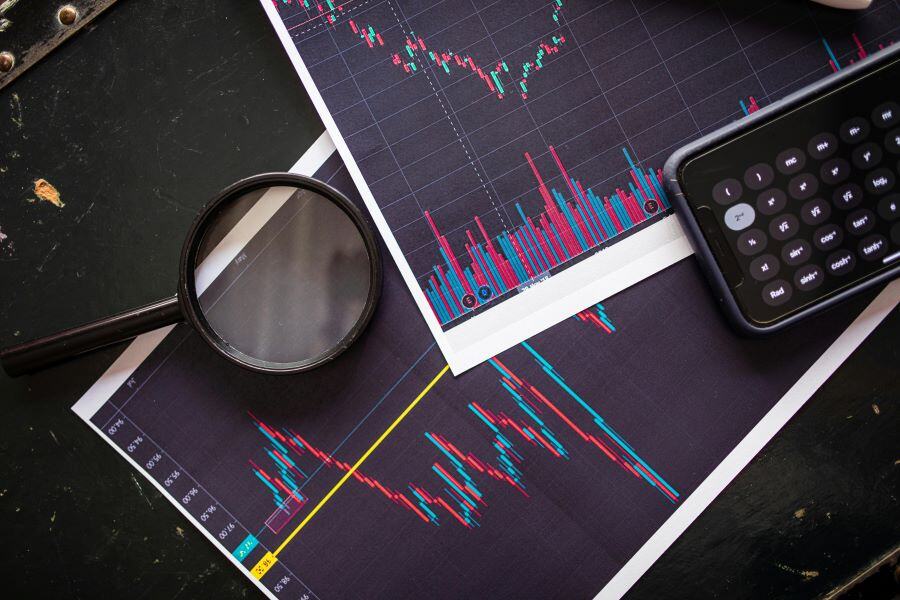Commercial Damages: How to Properly Calculate and Significantly Reduce Your Losses
Take outs:
- Common Causes of Commercial Damages: Key causes include patent infringement, breach of contract, antitrust violations, and fraudulent disclosure, all of which can significantly impact business operations and financial stability.
-
Multi-Step Process of Calculating Losses: The process of calculating commercial damages involves gathering business records, comparing them to case facts, timelines, and industry trends, and scrutinizing all information to provide evidence for decision-makers and possibly legal teams.
-
The Importance of Forensic Accountants: Forensic accountants are essential in assessing and documenting commercial damages, using their expertise to analyze financial records, navigate legal complexities, and ensure accurate loss calculations to help businesses recover and prevent further financial issues.
Commercial Damages: How to Properly Calculate and Significantly Reduce Your Losses
Many of us think of commercial damages as an event that equates to loss of revenue for a business. Several of the most common causes stem from product liability, patent infringement, and breach of contract. For purposes of this article, commercial damages include the loss of profit, loss of intellectual property, or a reduction in business value. These situations can halt business operations and result in devastating financial situations.
However, with the right team of specialized professionals and accountants in place to calculate damages and navigate the appropriate path towards recovery and recuperation, business owners can feel a sense of peace by working with teams of experts who know what to look for and how to proceed. Specifically, forensic accountants are among the top specialists who are equipped to assess records and perform deep-dive analyses to quantify the losses, then provide supporting documentation with facts and numbers.
What Causes Commercial Damages?
Several of the most common situations include:
Patent Infringement – If your business owns a patent and someone else uses your patented information without explicit permission in order to produce a profit, this cuts into what are rightfully your profits. Although only approximately 2,600 patent infringement lawsuits are filed in the U.S. each year, it is likely that the issue occurs much more frequently and commonly without the patent owner’s knowledge.
Breach of Contract – This occurs when a party fails to, without legal excuse, adhere to all or any part of the obligations in an agreed upon contract (for example: failure to complete a job, failure to pay in a timely manner, or providing services or goods that are subpar).
Antitrust – Laws regarding antitrust are established to keep businesses operating in a fair and honest manner. An example of antitrust law violation would be if a company lowers prices in a certain geographic area in order to push out their competition and achieve a monopoly on the market. We have seen this happen on a larger scale in recent years with the explosion of Amazon.
Fraudulent Disclosure – This involves the concealment or omission of important information and is a form of misrepresentation on behalf of a company or person. A quick example of this would be a machine manufacturer who embellishes or lies about the capabilities or durability of a machine they sell to you, ultimately affecting your production and resulting in losses for your company.
Sadly, the list of potential commercial damages may be extensive and exhausting. These types of situations need to be dealt with appropriately and immediately in order to prevent further losses.
Fortunately, these damages and risks can be calculated, however each case is complex and requires a lot of puzzle pieces to fit together in the correct way.
Commercial damages include the loss of profit, loss of intellectual property, or a reduction in business value.

Quantifying the Losses
Calculating commercial damages is a multi-step process and each case will be unique. A forensic accounting team must quickly be able to understand the nuances and operational attributes of each business in order to effectively calculate damages. The process starts off similarly to a business valuation, where business records, financial statements, and organizational operations documents are gathered and evaluated. Next, the information is compared against a background of facts from the commercial damages case, a timeline of events, industry trends and the sector’s economic climate. All of this information is highly scrutinized under the lens of a forensic accounting team and then provided as evidence to the key decision makers of a business and possibly even a legal team on behalf of the business owner.
While accountants as a whole are well-educated and knowledgeable, not just any run of the mill accountant is qualified to handle and analyze the enormous amounts of data that these types of cases may require.
Why Use a Forensic Accounting Team?
There are various reasons to hire a forensic accountant when facing commercial damages. Although highly accredited, most traditional accountants may not be familiar with the laws and regulations for certain commercial business practices, including copyright infringement or antitrust laws. There are a number of litigious landmines that must either be avoided or purposely set off, depending on the unique circumstance. It is important to work with a highly accredited team of forensic experts when the future of your company’s livelihood and reputation is at risk. Find professionals who have gone through the process and understand the best steps to take to ensure an optimal outcome, should your case land in court.
Conclusion:
Unforeseen issues in a commercial damages case can quickly send your business into a financial loss tailspin. Fortunately, you can prevent further loss and quickly get back on track with the proper forensic accounting team. With specialized knowledge to properly assess damages and navigate you through to recovery, they can proactively help you and your team to understand the risks of the situation and prevent further fallout, or even eliminate the opportunity for such disasters to occur in the first place.
References
Antitrust law. Legal Career Path. Retrieved from https://legalcareerpath.com/antitrust-law/
Ingram, Kathlene. (2012, August 28). Patent infringement: it’s more common than you think. Industry Week. Retrieved from https://www.industryweek.com/intellectual-property/patent-infringement-its-more-common-you-think
The information provided in this article is for informational purposes only and is not intended to substitute for obtaining tax, accounting, or financial advice from a professional accountant.
Share this
You May Also Like
These Related Stories

When is a Los Angeles forensic accountant necessary in divorce?

How to Know If Your CPA Is the Right CPA for Your Business?

/Brand/Logos/Kelly%20Partners%20Accountants%20Logo/Kelly-Partners-Accountants-Horizontal-Logo.webp?width=1500&height=212&name=Kelly-Partners-Accountants-Horizontal-Logo.webp)